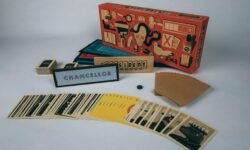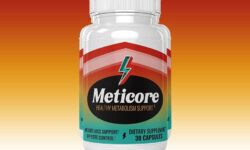How to Diy Epoxy Floor – Step by Step Easy Guide!
Are you ready to transform your space with a stunning How to Diy Epoxy Floor? Epoxy flooring has gained popularity for its durability, aesthetic appeal, and ease of maintenance. In this comprehensive guide, we will walk you through the process of applying epoxy flooring yourself, whether it’s for your home, residential areas, or industrial spaces.
Before diving into the application process, it’s crucial to gather all the necessary materials and tools. You will need epoxy resin, hardener, primer, decorative flakes (if desired), squeegees, rollers, safety equipment, and more. These items are essential for ensuring a successful epoxy flooring project with a professional finish.
When it comes to DIY epoxy flooring for homes, the benefits are endless. Not only does epoxy provide a durable and long-lasting surface, but it also offers customization options to suit your style. From choosing the right colors to selecting finishes that match your decor, epoxy flooring can elevate the look of any residential space.
Residential epoxy flooring is not limited to just homes. It can also enhance the functionality and aesthetics of areas like garages, basements, kitchens, and living spaces. With its seamless finish, easy maintenance, and resistance to stains, epoxy flooring is a practical choice for various residential environments.
For industrial settings, specialized epoxy floor coatings are designed to withstand heavy-duty use. Whether it’s a warehouse, factory, or commercial facility, industrial epoxy floors offer high-traffic durability, chemical resistance, anti-slip properties, and compliance with industry standards for a safe working environment.
Exploring the best floor epoxy options on the market is essential to finding the right product for your specific needs. Consider factors like durability, ease of application, color choices, UV resistance, and warranty coverage when selecting an epoxy coating for your DIY project. With the right materials and techniques, you can achieve a professional epoxy floor that enhances the beauty and functionality of your space.

Epoxy Flooring Do it Yourself
This article provides a comprehensive guide on how to apply epoxy flooring yourself, covering materials needed, techniques for homes, residential and industrial applications, and recommendations for the best epoxy products.
Are you ready to transform your floors into stunning, durable surfaces all on your own? Let’s dive into the exciting world of DIY epoxy flooring! Picture this: a plain, boring floor suddenly explodes with color and shine, like a surprise party for your home. The process may seem daunting, but with the right guidance, you can achieve professional results that will leave everyone in awe.
Imagine being the master of your floor’s destiny, from the initial preparation to the final curing stage. You hold the power to create a surface that not only looks fantastic but also withstands the test of time. It’s like painting a masterpiece, but with epoxy, you’re not just creating art; you’re crafting durability and beauty in one.
Let’s start by understanding the step-by-step process involved in DIY epoxy flooring. From prepping the surface to mixing the resin and applying it with finesse, each stage is a building block towards a floor that screams sophistication and style. The best part? You get to be the artist behind this explosive transformation, turning a mundane floor into a showstopper.
So, grab your tools, put on your creative hat, and get ready to embark on a journey that will not only elevate your space but also fill you with a sense of accomplishment. DIY epoxy flooring isn’t just about following steps; it’s about unleashing your creativity and witnessing the magic unfold right before your eyes.
Materials Needed for Epoxy Flooring
When embarking on an epoxy flooring project, it is crucial to gather all the necessary materials and tools to ensure a successful outcome. Here is a comprehensive list of items you will need to complete your DIY epoxy flooring installation:
- Epoxy Resin: The main component of the flooring system, epoxy resin provides the durability and strength required for long-lasting results.
- Hardener: Used in conjunction with the epoxy resin, the hardener initiates the curing process, creating a tough, protective surface.
- Primer: A primer prepares the surface for the epoxy application, promoting adhesion and ensuring a smooth finish.
- Decorative Flakes: Optional decorative flakes can be added to the epoxy for a customized look and added texture.
- Squeegees: Essential for spreading the epoxy evenly across the floor, squeegees help achieve a uniform coating.
- Rollers: Used to roll out the epoxy and eliminate any air bubbles, rollers contribute to a flawless finish.
- Safety Equipment: Personal protective equipment such as gloves, goggles, and a respirator are necessary to ensure safety during the application process.
Gathering these materials before starting your epoxy flooring project will make the application process smoother and more efficient. With the right tools at your disposal, you can achieve professional results and enjoy the benefits of a beautifully finished epoxy floor in your home or commercial space.
Diy Epoxy Flooring for Homes
Are you ready to transform your home with stunning epoxy flooring? DIY epoxy flooring for homes offers a fantastic opportunity to upgrade your living space with a durable and stylish solution. Imagine a floor that not only looks sleek but also withstands daily wear and tear with ease, requiring minimal maintenance. With epoxy flooring, this dream can become a reality.
When considering DIY epoxy flooring for your home, it’s essential to understand the benefits it can bring. Epoxy floors are known for their exceptional durability, making them perfect for high-traffic areas like garages, basements, kitchens, and living rooms. These floors can resist stains, impacts, and scratches, ensuring a long-lasting and attractive finish for your home.
One of the significant advantages of epoxy flooring is its customization options. You can choose from a wide range of colors, finishes, and decorative flakes to create a unique look that complements your home’s style. Whether you prefer a glossy finish or a more subtle matte appearance, epoxy flooring allows you to tailor the design to suit your taste.
Moreover, DIY epoxy flooring is a cost-effective solution for homeowners looking to enhance the aesthetics of their living spaces. Compared to traditional flooring options, epoxy is relatively affordable and offers excellent value for money due to its longevity and low maintenance requirements. By investing in epoxy flooring, you can elevate the overall look of your home without breaking the bank.
Before embarking on your DIY epoxy flooring project, it’s crucial to prepare the surface properly and follow the application instructions carefully. With the right materials, tools, and techniques, you can achieve a professional finish that will impress your guests and stand the test of time. So, why wait? Dive into the world of DIY epoxy flooring and give your home a makeover that will leave everyone in awe.
Residential Epoxy Flooring
Residential epoxy flooring offers a fantastic way to upgrade the look and functionality of your home. Imagine transforming your garage, basement, kitchen, or living spaces into sleek, durable areas that are both easy to maintain and visually appealing. With epoxy flooring, you can achieve just that and more.
One of the key advantages of epoxy flooring in residential settings is its exceptional durability. It can withstand heavy foot traffic, impacts, and spills, making it an ideal choice for busy areas in your home. Additionally, the seamless surface of epoxy flooring makes cleaning a breeze, saving you time and effort in maintenance.
When it comes to customization, epoxy flooring provides endless possibilities. You can choose from a wide range of colors, finishes, and decorative flakes to create a unique look that suits your style and complements your home decor. Whether you prefer a glossy finish or a more textured appearance, epoxy flooring can be tailored to your preferences.
Cost-effectiveness is another appealing aspect of residential epoxy flooring. Not only is the initial installation relatively affordable compared to other flooring options, but the long-term savings from its durability and low maintenance requirements make it a wise investment for homeowners looking for both quality and value.
Choosing the right colors and finishes for your home is crucial when installing epoxy flooring. Consider the existing color scheme and design elements in your space to ensure a harmonious look. Whether you opt for a solid color for a sleek modern feel or incorporate decorative flakes for added dimension, the choice is yours to create a space that reflects your personality.
Industrial Epoxy Floor Coatings
When it comes to industrial settings, the demands on flooring are significantly higher compared to residential spaces. Industrial epoxy floor coatings are specifically designed to meet these rigorous requirements, offering durability, chemical resistance, and safety features that are essential for areas like warehouses, factories, and commercial facilities.
- One of the key features of industrial epoxy coatings is their ability to withstand high levels of foot and vehicle traffic. These coatings are formulated to resist wear and tear, ensuring a long-lasting and hard-wearing surface that can endure heavy use.
- Chemical resistance is another crucial aspect of industrial epoxy floor coatings. These coatings are engineered to withstand exposure to various chemicals, oils, and solvents commonly found in industrial environments, protecting the underlying concrete and maintaining the integrity of the floor.
- Anti-slip properties are essential for ensuring a safe working environment in industrial settings. Epoxy coatings can be customized with additives to enhance traction and reduce the risk of slips and falls, especially in areas prone to moisture or spills.
In addition to performance characteristics, industrial epoxy floor coatings are designed to meet industry standards and regulations. Compliance with safety guidelines and requirements is paramount in industrial facilities, and epoxy coatings can help meet these standards while providing a durable and visually appealing flooring solution. When selecting an industrial epoxy floor coating, consider factors such as the specific needs of your facility, the level of traffic and use, as well as any chemical exposure that the floor may encounter. By choosing a high-quality epoxy coating that is tailored to your industrial environment, you can ensure a long-lasting and reliable flooring system that meets the demands of your business.
Best Floor Epoxy
When it comes to choosing the best epoxy floor coating for your project, several factors come into play to ensure you achieve a durable and visually appealing finish. Let’s dive into the key considerations when selecting the ideal floor epoxy:
- Durability: Look for epoxy coatings that are known for their high durability and resistance to wear and tear. A durable epoxy will ensure your floor maintains its pristine appearance for years to come.
- Application Ease: Opt for epoxy products that are easy to apply, even for beginners. Smooth application can make the process more efficient and result in a professional-looking finish.
- Color Options: Consider the range of color options available with different epoxy coatings. Choose a color that complements your space and enhances its overall aesthetic appeal.
- UV Resistance: UV-resistant epoxy coatings are essential for areas exposed to sunlight to prevent discoloration and maintain the vibrancy of the floor’s color over time.
- Warranty Coverage: Check for warranty coverage when selecting an epoxy product. A warranty can provide you with peace of mind regarding the quality and longevity of the coating.
By evaluating these factors and comparing various epoxy floor coatings on the market, you can make an informed decision that meets your specific flooring needs. Whether you are looking for a durable solution for a high-traffic industrial space or a customizable option for your home, the best floor epoxy will enhance the overall look and functionality of your floors.
Frequently Asked Questions
What is epoxy flooring?
Epoxy flooring is a durable and versatile coating system made up of epoxy resin and a hardener. It is commonly used to protect and enhance concrete floors in residential, commercial, and industrial settings.
Is epoxy flooring suitable for homes?
Yes, epoxy flooring is an excellent choice for homes due to its durability, easy maintenance, and customizable options. It can be installed in various residential areas like garages, basements, kitchens, and living spaces.
How long does it take to apply epoxy flooring?
The time taken to apply epoxy flooring depends on factors like the size of the area, surface preparation, and curing time. Typically, a small residential project can be completed in a few days, including preparation and curing.
Can epoxy flooring be applied over existing floors?
Yes, epoxy flooring can be applied over existing concrete floors, as long as the surface is properly cleaned, repaired, and primed. It provides a seamless and durable finish over the old floor.
Is epoxy flooring resistant to chemicals?
Most epoxy flooring systems are resistant to a wide range of chemicals, making them ideal for industrial settings where spills and chemical exposure are common. It is important to choose the right epoxy formulation for specific chemical resistance requirements.



